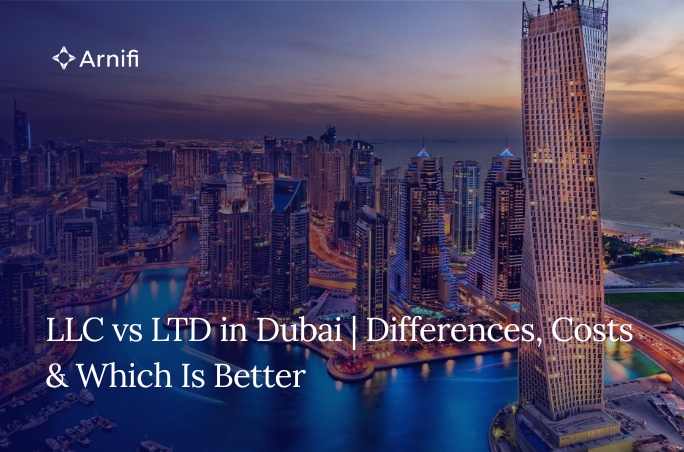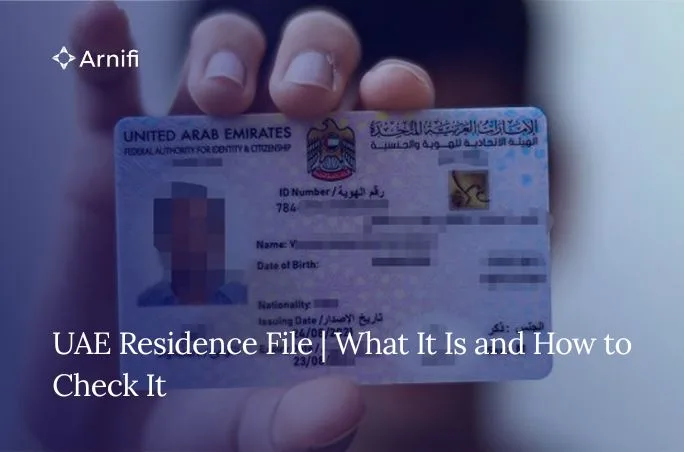Mainland vs Free Zone Costs for UAE Business Set-up
by Shethana Aug 23, 2024  12 MIN READ
12 MIN READ

Want to understand the costs for UAE business set up? If you want to start a company in the UAE, it’s important to know the differences between setting up in the Mainland and in a Free Zone. This blog post looks at the costs of each option. This information will help you make smart choices for your business setup in the UAE.
Understanding the UAE Business Landscape
The UAE has a lively and varied business scene. It attracts entrepreneurs and investors from all over the world. The country’s location is great, and its tax-friendly rules help make it a good choice for all types of businesses. The UAE government has started programs to encourage foreign investment and make starting a business easier.
Also, the UAE has a strong legal system and a stable political environment. This makes it a safe and dependable place for business. Whether you set up your business in the Mainland or in a Free Zone, the UAE provides many chances for growth and success.
The Mainland and Free Zone Overview
The Mainland is controlled by the Department of Economic Development (DED). It lets businesses work directly in the local UAE market and take part in government contracts. But, there may be rules on foreign ownership based on the type of business activity.
Free Zones are special areas with a focus on different industries. They offer good incentives like 100% foreign ownership, tax exemptions, and easy business setup. Free Zones also have great infrastructure and simple customs procedures. They give access to a worldwide network of businesses. Each Free Zone has different rules and benefits, so it’s important to find one that fits your business goals.
It is vital to know the main differences between Mainland and Free Zones. This will help you decide where to set up your business in the UAE.
Key Differences Between Mainland and Free Zone Companies
One main difference is in foreign ownership. Recent changes have softened some rules. However, mainland companies may still need a local sponsor or partner depending on their business activity. In contrast, Free Zones usually allow for complete foreign ownership. This gives international investors more freedom and control.
Another difference is operational flexibility. Mainland companies can easily access the bigger UAE market. They can trade directly with local businesses and consumers. Free Zone companies, while they have easier import-export processes, might struggle to trade directly within the UAE without a local agent or distributor.
Finally, the rules and compliance requirements are different. Mainland companies need to follow the guidelines of the Emirates’ DED, which means they must comply with UAE commercial laws. Free Zones have their own set of rules. These rules are often seen as simpler and more friendly for business, but they do have specific guidelines for different industries.
Initial Set-up Costs in Mainland vs Free Zone
The costs to start a business in the UAE can vary a lot. It depends on where you set up, the type of company you choose, and what business you run. For a Mainland setup, you usually need to pay government fees for initial approval, register a trade name, rent office space, and handle legal obligations.
On the other hand, Free Zones often have packages. These packages can include license fees, visa allocation, and office space, which can make starting easier.
It is important to check the specific needs of the Free Zone you choose. There may be extra costs too. You should think about things like minimum capital requirements, visa processing fees, and annual audit fees when looking at the overall cost to start your business.
Government Fees and Legal Formalities
Setting up a business in the UAE involves some government fees and legal steps. This adds to the cost of starting up. For companies in the mainland, the Department of Economic Development (DED) charges for things like initial approval, trade name registration, and company registration. These costs can change based on the Emirate you are in and the legal type of your business, like a sole proprietorship or a limited liability company.
It’s also a good idea to hire legal consultants. They can help you follow local regulations and prepare the needed documents. Legal fees will depend on how complex your business is and what services you need.
Free Zones usually have simpler processes and package deals that might cover some of these fees. Still, it is important to check the specific requirements and costs for the Free Zone you choose, as they can be different.
Office Space Costs and Options
Office space costs are a big part of the expenses when starting a business in the UAE. In Dubai Mainland, rental rates change a lot based on location, size, and what facilities are available. Prime business areas usually have higher rents, but there are also more affordable options in different areas.
Free Zones often have different office space solutions as part of their packages, or they offer good rental rates. Some common options in Free Zones include:
- Flexi-desks: These are shared workspaces with basic items. They are good for freelancers and small businesses.
- Shared Offices: These offer private office spaces that are part of a shared area. They work well for growing businesses.
- Dedicated Offices: These are fully furnished and equipped private offices. They are good for established businesses.
Your choice will depend on your budget, team size, and operational needs.
Recurring Costs for Businesses in Mainland and Free Zones
Businesses in the UAE need to think about more than just the startup costs. They also have to consider ongoing expenses to keep things running smoothly. These recurring costs can vary between Mainland and Free Zone businesses. This difference can impact how well a business does over time. It is important to understand these costs for proper budgeting and to make sure the business can run sustainably in the UAE.
Some factors that add to these ongoing costs include visa renewals, annual license fees, auditing needs, and continued office expenses.
Visa and Employee Sponsorship Fees
Visa and employee sponsorship fees are important costs for businesses in the UAE. This is especially true for those that hire foreign workers. Mainland businesses usually submit visa applications to the General Directorate of Residency and Foreigners Affairs (GDRFA) in their Emirate.
For Mainland businesses, visa fees include application fees, processing fees, and the cost of issuing an Emirates ID. These fees can change based on the worker’s nationality, the type of visa, and how long it lasts. Free Zones have their own systems for processing visas and for setting fees, which might be different from those in Mainland.
It is important to know the specific visa requirements for both Mainland and Free Zone companies. Not following these rules can result in penalties.
Annual License Renewal Fees
Annual license renewal fees are required for all businesses in the UAE. This helps them stay legal and follow the rules. For Mainland companies, the fees depend on a few things. These include the type of business activity, the legal structure like a sole proprietorship or a limited liability company, and the Emirate where they operate.
These fees help cover the costs of keeping business records and staying compliant. Free Zones have their own fees for license renewals. They often offer better rates than Mainland companies.
It is important to renew licenses on time. If renewals are late, they usually come with penalties and may disrupt business.
Operational Costs Comparison
Operational costs for businesses in the UAE depend on many factors. These include the industry, size, location, and business type. Free Zones can offer some cost benefits. However, they may limit direct market access. This means businesses often need to work with local agents or distributors for certain tasks.
Mainland companies do not have these access restrictions. Yet, they often deal with higher setup and operational costs. It’s important to think about these factors as well as your business goals and plans for the future. This will help you decide between Mainland and Free Zones. By looking at the pros and cons of each option, entrepreneurs can plan better. This lets them improve operational efficiency and lower costs.
Import/Export Tariffs and Customs Duties
Import and export tariffs, along with customs duties, are important for UAE businesses that are involved in trading activities with other countries. The UAE has a trade system that generally allows for low customs duties on most items. Still, some products might have higher tariffs. They may also need special licenses to import or export. Free Zones provide easier customs procedures and can give duty exemptions for items that are imported for re-export or used in manufacturing in the zone.
It is key for businesses in international trade to know the specific import/export rules and related costs. Working with a customs broker or a freight forwarder can help make this process smoother. It is also important to consider these costs when looking at whether your business can be financially successful.
Access to UAE Markets and International Trade
Accessing the UAE market and opening up to international trade are important factors for businesses starting in the UAE. Mainland companies get direct access to the large local market. This includes both government bodies and local consumers. These opportunities are great for businesses that want to focus on the domestic market.
Free Zones have their own benefits for international trade. However, businesses in Free Zones might need to work with local distributors or agents to reach the local UAE market.
Free Zones also help businesses connect to global markets. They provide easier customs processes and connect to major shipping routes. The UAE’s location at the crossroads of Asia, Africa, and Europe makes it a perfect center for those in international trade.
It is important to understand how the access to the market works for each area. This knowledge helps in making plans that fit your business goals.
Benefits of Setting Up in a Free Zone
Setting up in a Free Zone in the UAE has many benefits. It is a good choice for businesses that do international trade or want 100% foreign ownership. Free Zones have low taxes, with no corporate or personal income tax. This makes it easier to manage finances and can increase profits. They also have specific industry areas and facilities designed for certain sectors. This helps businesses work together and be more efficient.
Free Zones usually have simple processes for business setup. This cuts down on paperwork and helps companies start working quickly.
Tax Exemptions and Repatriation Benefits
One of the biggest benefits of setting up in a Free Zone is the tax exemptions and the chance to take money out of the country. Most Free Zones provide a 100% exemption from both corporate and personal income tax. This helps businesses lower their overall tax costs. As a result, they can keep more of their profits and invest in their growth.
Also, Free Zones usually allow businesses to fully repatriate their capital and profits. This gives them the freedom to manage their money around the world. This is especially appealing to foreign investors who want to make the most of their returns and take their earnings out without limits.
These tax benefits, along with the fact that 100% foreign ownership is allowed, make Free Zones a great place for businesses wanting to improve their financial operations.
Specialized Sectors and Support Services
Free Zones in the UAE focus on specific sectors. They help businesses by giving access to industry-specific support and facilities. Free Zones, such as those for logistics, manufacturing, technology, and media, meet the needs of their targeted industries. This setup allows businesses to work together and benefit from the skills and knowledge of others in the same field.
These zones also offer many support services. This includes help with business setup, visa processing, legal advice, and networking. Such services make operations easier and let entrepreneurs concentrate on their main business activities.
By offering specialized help and encouraging teamwork, Free Zones improve the efficiency and success of businesses within their areas.
Conclusion
In conclusion, deciding if you want a mainland or a free zone setup in the UAE means looking at several factors. You should think about initial costs, ongoing expenses, and the benefits of running your business. The mainland gives you access to local markets and more flexibility in business activities. On the other hand, free zones offer tax exemptions and special services. It is important to understand these differences. This will help you make the best choice for your business goals and finances. Whether you choose a mainland or a free zone company, you need to plan carefully and follow the rules to set up your business successfully.
Frequently Asked Questions
What are the most cost-effective free zones in the UAE for startups?
There are many affordable Free Zones for startups in the UAE. They provide lower company formation costs and helpful benefits. Ras Al Khaimah Free Zone (RAKEZ) and Ajman Free Zone are popular choices. They offer good packages that focus on supporting new businesses.
Can foreign investors own 100% of a mainland company in the UAE?
Recent changes in the UAE allow 100% foreign ownership of mainland companies in certain industries. Still, some sectors may need a local sponsor or partner, especially for legal entities like limited liability companies (LLCs). On the other hand, sole proprietorships can be fully owned by foreigners.
About Arnifi
Arnifi is digital first Corporate service provider helping companies enter the Middle East region, starting with UAE and Saudi Arabia markets. Founded and backed by professionals from Amazon, Souq and other large companies operating in KSA – the team understands what it takes to succeed as a startup in both UAE and Saudi Arabian markets, apart from going through the setup process multiple times. Arnifi will provide a truly digital experience to entry and scale up of companies both UAE and Saudi Arabia. Discover tailored solutions and strategic partnerships that propel your business forward. Check out at – www.Arnifi.com for more details.
ALSO READ: Secure Individual or Corporate Sponsorship in UAE
Top UAE Packages

Related Articles
Top UAE Packages



